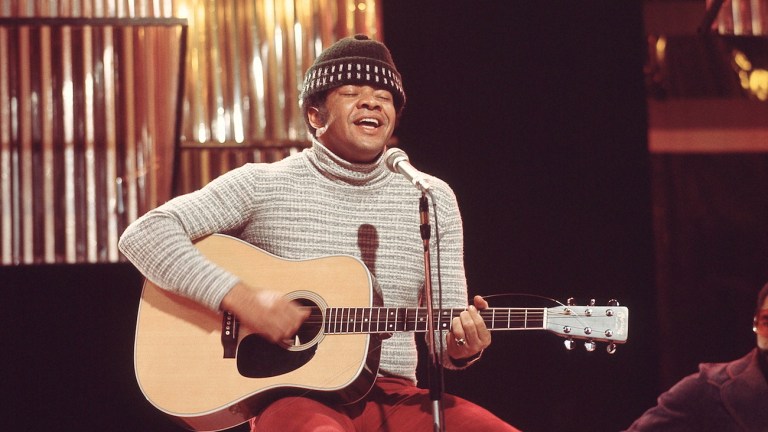Soul Singer Bill Withers Dies at 81
Bill Withers is gone and it feels like there ain't no sunshine.

Soulful singer-songwriter Bill Withers, best known for a string of hits that includes “Ain’t No Sunshine” and “Lean On Me,” has died from heart complications. He was 81.
“We are devastated by the loss of our beloved, devoted husband and father,” Withers’ family said in a statement to the Associated Press. “A solitary man with a heart driven to connect to the world at large with his poetry and music, he spoke honestly to people and connected them to each other. As private a life as he lived close to intimate family and friends, his music forever belongs to the world. In this difficult time, we pray his music offers comfort and entertainment as fans hold tight to loved ones.”
The three-time Grammy Award winner released eight albums before retiring from music in 1985. However, his inspiration and influence on artists, films, and music fans has never stopped. Even today, amidst the coronavirus pandemic, “Lean on Me” is a source of comfort and covers. Withers’ range covered soft, personal statements like “Grandma’s Hands” through romantic classics, to rhythmic funk classics like “Use Me,” and social commentary like “I Can’t Write Left-Handed.”
William Harrison Withers was born on July 4, 1938, in Slab Fork, West Virginia. He had a stutter when he was born, which he said in interviews held him back from making friends. His father died when Bill was 13, and his grandmother helped raise him, inspiring the “Grandma’s Hands” song for his 1971 debut album, Just As I Am.
Withers joined the Navy when he was 17. He served for nine years as an aircraft mechanic before being discharged in 1965. After discovering singing and songwriting, he moved to Los Angeles in 1967, installing toilets for the Douglas Aircraft Corporation, Boeing, and other companies. He taught himself guitar between shifts and spent his money on demo tapes. He also performed in clubs at night.
Withers didn’t quit his day job, even after “Ain’t No Sunshine” was released. The album cover shot has him holding a lunch pail. The song, which was inspired by the film Days of Wine and Roses, earned him his first Grammy for best R&B song in 1972.
Withers signed to Sussex Records and recorded his first album with Booker T. Jones as producer in 1970. Donald “Duck” Dunn was on bass, and the guitarist was Stephen Stills. For his follow-up, Still Bill (1972)–which included “Use Me” and “Lean on Me,” which Withers wrote after learning to play the piano–Withers recruited four members of the Watts 103rd Street Rhythm Band.
Withers’ third album, 1974’s +’Justments, was released just as Sussex Records was shut down by the IRS and only reached No. 67 on the album charts. But he still filled music festivals, like the one he did with James Brown, Etta James, and B.B. King in 1974 to coincide with Muhammad Ali and George Foreman’s “Rumble in the Jungle” heavyweight title fight in Zaire. He also wrote and produced two songs for the Gladys Knight & the Pips album I Feel a Song that year.
Withers moved to Columbia Records in 1975, but his first two albums for the label, Making Music and Naked and Warm, didn’t do as well. Menagerie from 1977 saw him mix disco into the sound and peaked at 39. The album included the song “Lovely Day,” co-written with Skip Scarborough, which featured Withers holding the word “day” for 19 seconds.
After ‘Bout Love from 1979, which disappointed the label by only hitting No. 134, Withers took a break from recording. He returned to the top 10 in 1981 when he did the guest vocal on the song “Just the Two of Us” from saxophonist Grover Washington Jr.’s Winelight album. He earned another Grammy for “In the Name of Love,” which he wrote with Ralph MacDonald and William Salter. Withers was a featured vocalist on French singer Michel Berger’s 1982 album, Dreams in Stone.
Withers claimed Columbia’s head of A&R, Mickey Eichner, was the reason for the seven-year gap before he released his last album Watching You Watching Me, which included the Top 40 single “Oh Yeah,” in 1985. When he was inducted into the Rock and Roll Hall of Fame in 2015 by Stevie Wonder, Withers said A&R stood for “antagonistic and redundant.” He went into early retirement after the album.
Withers married Room 222 actress Denise Nicholas in 1973, but the couple became tabloid fodder and the marriage lasted only a year. He married Marcia Johnson in 1976, and made her his manager. He is survived by her and their two children, Todd and Kori.
